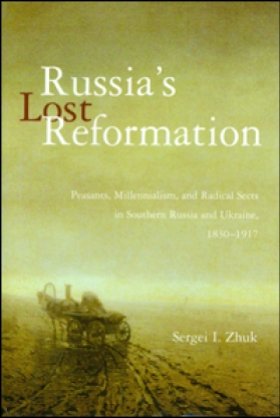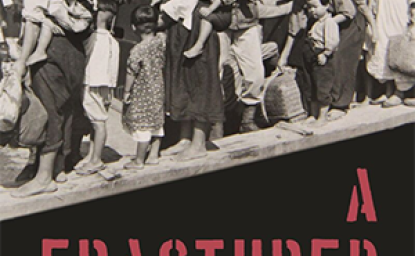Russia's Lost Reformation: Peasants, Millennialism, and Radical Sects in Southern Russia and Ukraine, 1830-1917

-
Radical Protestant Christianity became widespread in rural parts of southern Russia and Ukraine in the nineteenth and early twentieth centuries. Russia’s Lost Reformation: Peasants, Millennialism, and Radical Sects in Southern Russia and Ukraine, 1830–1917 studies the origins and evolution of the theology and practices of these radicals and their contribution to an alternative culture in the region.
Arising from a confluence of immigrant Anabaptists from central Europe and native Russian religious dissident movements, the new sects shared characteristics with both their antecedents in Europe and their contemporaries in the Shaker and Quaker movements on the American frontier. The radicals’ lives showed energy and initiative reminiscent of Max Weber’s famous paradigm in The Protestant Ethic and the Spirit of Capitalism. And women participated in congregations no less than men and often led them.
The radicals criticized the existing social and political order, created their own educational system, and in some cases engaged in radical politics. Their contributions, argues Zhuk, help explain the receptiveness of peasants in this region to the revolutions of 1905 and 1917.
Sergei I. Zhuk is an assistant professor of history at Ball State University. Formerly a professor of American history specializing in American religious movements at Dnieperpetrovsk University in Ukraine, he recently completed a Ph.D. in Russian history at the Johns Hopkins University. Zhuk’s work has been published in English, French, Russian, and Ukrainian.
Author
Sergei I. ZhukResearch Grant;
Professor of History, Ball State UniversityBrowse Insights & AnalysisExplore More
Browse Insights & Analysis



